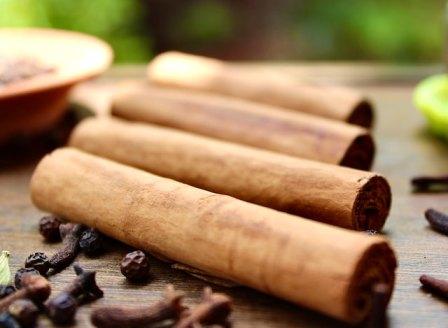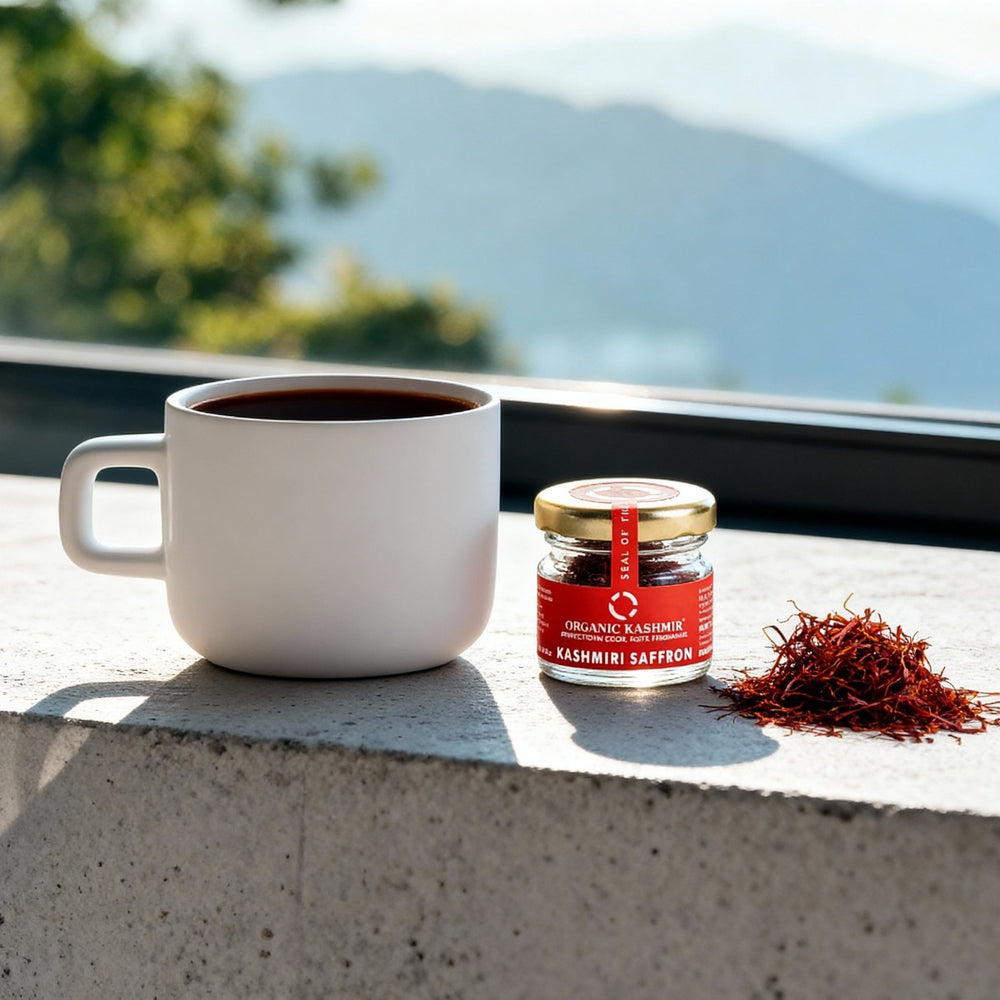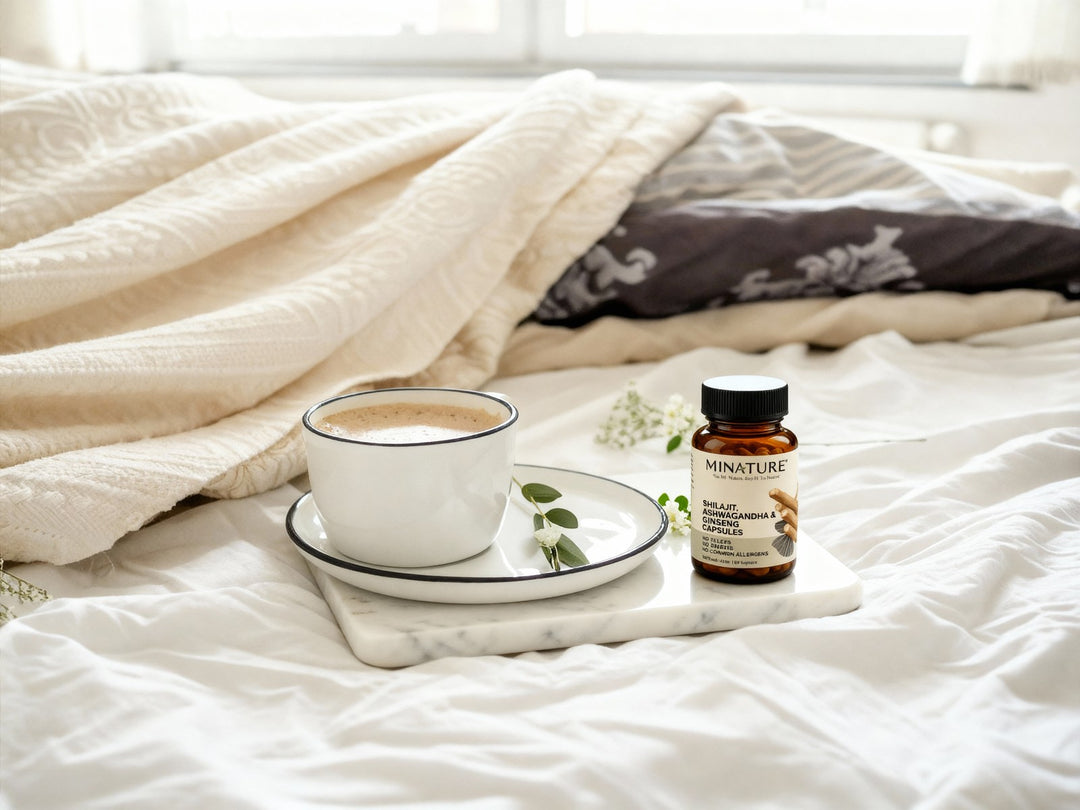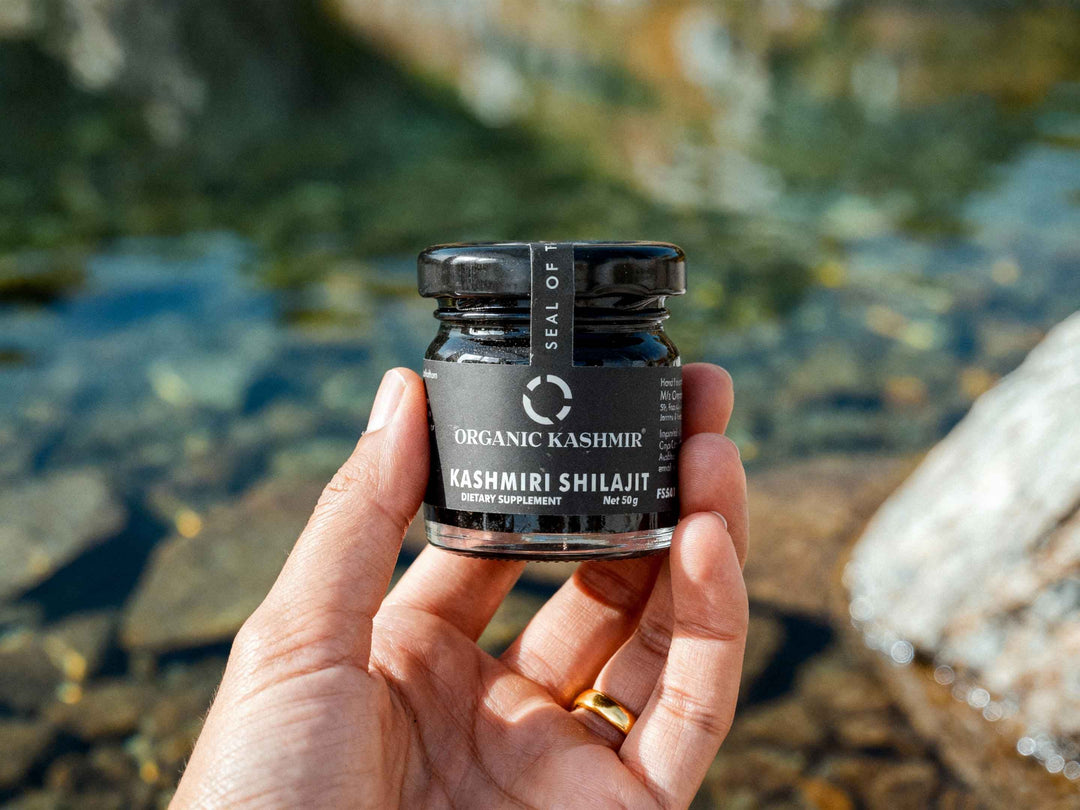Ceylon Cinnamon: Ayurvedic Spice of Wellness

Botanical Name- Cinnamomum zeylanica Blume
Family- Lauraceae
Ceylon Cinnamon, scientifically labeled as Cinnamomum zeylanicum and is commonly referred to as 'Dalchini' in Hindi, is the product of dried bark from a small tree primarily found in India's southern and western regions. Its Hindi name for leaves is 'Tejpatra,' and it plays a pivotal role in Indian culinary traditions, often encountered in the form of rolled, dried sticks.
Within the realm of Ayurveda, Ceylon Cinnamon carries the designation of 'Tvak'. This spice boasts a distinctive blend of pungent and sweet flavours, complemented by its natural warmth. Its therapeutic value shines through as it is recommended for addressing various conditions, including edema, flu, indigestion, and cough. Of significance, Ceylon Cinnamon finds favour among individuals characterised by a 'Kaphavata' constitution in Ayurvedic terms.
Recognised for its impressive medicinal properties, Cinnamon delivers antibacterial, anti-fungal, and cholesterol-lowering benefits. Additionally, it lends support to gastrointestinal well-being and aids in the regulation of blood sugar levels.
Parts Used and Dosage
- Stem Bark: Powder (1-3 gm)
- Leaves: Powder (1-3 gm)
- Cinnamon Oil: 2-5 drops
Synonyms
- Tanutvak, Chocha, Darusita: This term emphasises the "wood" or "bark" aspect of cinnamon.
- Tvaksar, Tvak: The term "Tvak" is commonly used in Ayurveda to refer to cinnamon.
- Dwiparnika: This term can also refer to cinnamon and emphasises its origin, as cinnamon trees are native to tropical regions.
- Surabhi: Meaning "fragrant" or "aromatic", highlighting cinnamon's aromatic qualities.
- Sugandhavalli, Sugandha: Referring to the spice's pleasant fragrance.
- Tamala Patra: This term is sometimes used to describe the leaves of the cinnamon tree, which are commonly known as "Tejpatra."
- Svadvi: Because of sweet taste.
- Mukha Shodhya: Cleanses mouth.
- Vanapriya: Grows wildly in forest.
- Gandhavalka: Having a good smell.
Ayurvedic Composition
|
Rasa (taste) |
Katu (pungent), Tikta (bitter), Madhura (sweet) |
|
Guna (qualities) |
Laghu (light to digest), Ruksha (dry), Teekshna (sharp) |
|
Veerya (potency) |
Ushna (hot potency) |
|
Vipaka (post digestion taste) |
Katu (pungent) |
|
Effect on Tridosha |
Balances Vata and Kapha, Increases Pitta |
Ayurvedic Insights and Health Benefits
Amahara- Cinnamon aids in healing from effects of ama, a byproduct of indigestion and metabolic imbalance.
Shiroruk Hara- Offers relief from headaches and head discomfort.
Hrut Bastigata Jantujit- Helps combat microbial infestations in the bladder, lungs, and heart.
Kandu- Relieves itching and pruritus.
Kaphakasahara- Provides relief from cough and helps in managing sputum.
Vishapaha- Serves as an antidote and proves beneficial in cases of toxicity.
Basti Shodhana- Cleanses the urinary bladder and acts as a diuretic, and addresses urinary retention and dysuria.
Kanta Vaktra Rujahara- Eases throat and oral pain, providing comfort.
Amavatahara- Plays a role in managing Rheumatoid Arthritis.
Kantashuddhikara- Cleanses the throat, improves voice quality, and promotes clarity.
Vataja Arsha- Useful for management of painful haemorrhoids.
Peenasahara- Provides relief from allergic rhinitis and a runny nose.
Aruchi- Helps relieve anorexia and tastelessness.
Peenasa- Beneficial in managing rhinitis.
Pittala- Has a slight Pitta-increasing property.
Krumihara- Effective against worm infestations and infected wounds.
Lowers Blood Pressure- Aids in reducing blood pressure through its cardio-tonic and diuretic effects.
Amenorrhea and Delayed Periods- Due to its Pitta-increasing property, can be useful in managing symptoms of amenorrhea and delayed periods.
Major Chemical Constituents
Cinnamaldehyde, Eugenol, Benzaldehyde, Methyl Amyl Ketone, Phellandrene, Pinene, Cymene, Linalool, Cumic Aldehyde, Caryophyllene, Safrole, Methyl Eugenol, Borneol, Cinnamyl Alcohol, Cinnzeylanin, Cinnzeylanol, Epicatechin, Cinnacassiol D1, and more, contribute to its aroma and potential health benefits.
Enhancing Wellness Across Body Systems
- Nervous System: Cinnamon's stimulating properties invigorate the nervous system, promoting heightened alertness and mental vitality.
- Digestive System: It acts as a carminative, aiding digestion, dispelling gas, and purifying the mouth. Cinnamon is a remedy for anorexia, indigestion, and liver imbalances.
- Circulatory System: Cinnamon's heart-stimulating qualities potentially bolster immunity and are beneficial for those grappling with conditions rooted in imbalances of the vital life force (dosha).
- Respiratory System: In harmony with Ayurvedic principles, cinnamon eases excess kapha dosha, making it particularly valuable in addressing coughs, laboured breathing, and respiratory disturbances.
- Excretory System: Cinnamon's innate warmth and stimulating nature enhance urine production, contributing to the management of conditions marked by painful urination or the presence of impurities in the urine.
- Reproductive System: Within the realm of reproductive health, cinnamon is esteemed for its ability to invigorate the uterus and is recommended for addressing amenorrhea, the absence of menstruation. Furthermore, it is celebrated as an aphrodisiac, potentially nurturing the fires of desire and intimacy.
Additional Cinnamon Benefits
- Reduces Inflammation Naturally
- Powerful Antioxidant Properties
- Blood Sugar Regulation Support
- Aids in Weight Management
- Natural Antimicrobial Agent
- Skin Health and Acne Management
- Menstrual Discomfort management
- Potential Anti-Cancer Properties
- Boosts Immune Function
- Soothes Joint Pain
- Enhances Oral Health
- Anti-Allergic Effects
- Fights Bacterial and Fungal Infections
- Mood and Stress Management
Using Cinnamon for Health and Wellness
- Support kidney health- Consume 1-2 grams of cinnamon powder mixed with honey.
- Promote wound healing- Apply a mixture of honey and cinnamon directly onto wounds.
- Soothe skin itching and discomfort- Apply a soothing paste of cinnamon and honey to affected areas.
- Assist in weight management- Start your day with a blend of cinnamon and honey dissolved in warm water on an empty stomach.
- Relief from headaches- Apply a paste of cinnamon powder directly onto your forehead.
- Prevent nausea and freshen your breath- Chew on a small piece of cinnamon.
- Manage dental issues like caries- Apply cinnamon oil to affected teeth using a swab.
- Clear acne and pimples- Create a paste by mixing 1 tbsp cinnamon powder with 2-3 tsp honey, apply to affected part, leave for 10 minutes, then rinse with water.
- Common cold- Take 1 part of powder with 4 part of honey 2-3 times a day.
- Lower blood sugar levels- Take cinnamon powder 5g per day with honey (known diabetic patients may use with caution).
- In loss of Appetite- Take 2g powder of equal parts of Dalchini and Carom Seeds (Ajwain) for chewing in three divided doses before food.
- For stress management- Crushed pieces may be kept in hanky or near the pillow. The aroma has soothing action on mind.
- To help in menstrual pain- Boil 2 inches of Cinnamon sticks in 1.5 cups of water, strain, add 1/2 lemon juice, and drink twice daily.
Cinnamon Turmeric milk:
Ingredients: 1 glass of milk & 2 pinches of Cinnamon powder
Instructions:
- In a pan, heat 1 glass of milk until it comes to a boil.
- Add 2 pinches of Cinnamon powder, pinch of turmeric powder and stir until it dissolves.
- Allow the milk to cool to a lukewarm temperature.
- Consume this milk, preferably before bedtime, to aid with insomnia, arthritic pain and overall well being.
Cinnamon Oil:
A versatile extract from the inner bark, rich in cinnamaldehyde, with antibacterial properties that uplift mood, support oral health, aid digestion, and offer benefits for skin, hair, and respiratory health, making it a valuable addition to both aromatherapy and culinary applications. It provides all the benefits as of cinnamon powder.
How to Use:
- As a skin moisturiser when mixed with coconut oil.
- Orally, with warm water or honey on an empty stomach.
- As a culinary spice by adding a drop to cooked meals.
- Topically, on areas of pain, when combined with a carrier oil like castor or mustard oil.
Side Effects and Considerations
- Caution for individuals with a Pitta body type, especially those sensitive to sun heat, as it can exacerbate conditions like bleeding disorders, gastritis, burning sensation, etc.
- Generally safe in small doses during pregnancy, lactation, and for children.
- Potential for cinnamon allergies, which can cause symptoms such as runny nose, skin rashes, and swelling of the eyes, lips, and tongue.
Always consult with an Ayurvedic practitioner before using any herb for specific health concerns, especially if you have underlying medical conditions or are taking medications.
SHOP NATURAL CEYLON CINNAMON POWDER
REFERENCES:
- http://ccras.nic.in/content/important-uses-dalchini
- Book of Ayurvedic Home Remedies by Central Council For Research In Ayurveda And Siddha
- The Ayurvedic Pharmacopoeia Of India.Part 1 Volume 1.
- Cinnamon: Uses, Side effects, Doses, Interactions [Internet].Atlanta [last updated in 2016].
- https://www.1mg.com/ayurveda/cinnamon
- https://www.easyayurveda.com/cinnamon-essential-oil
Published By Rasayana Limited. All Rights reserved. No part of this publication may be reproduced or transmitted in any form or by any means, electronic or mechanical, including photocopying, recording, or any information storage and retrieval system, without permission in writing from the publisher.
Author: Dr. Monika Miital
Editor: Taahira Om Kisna
Photography: Rens D on Unsplash







